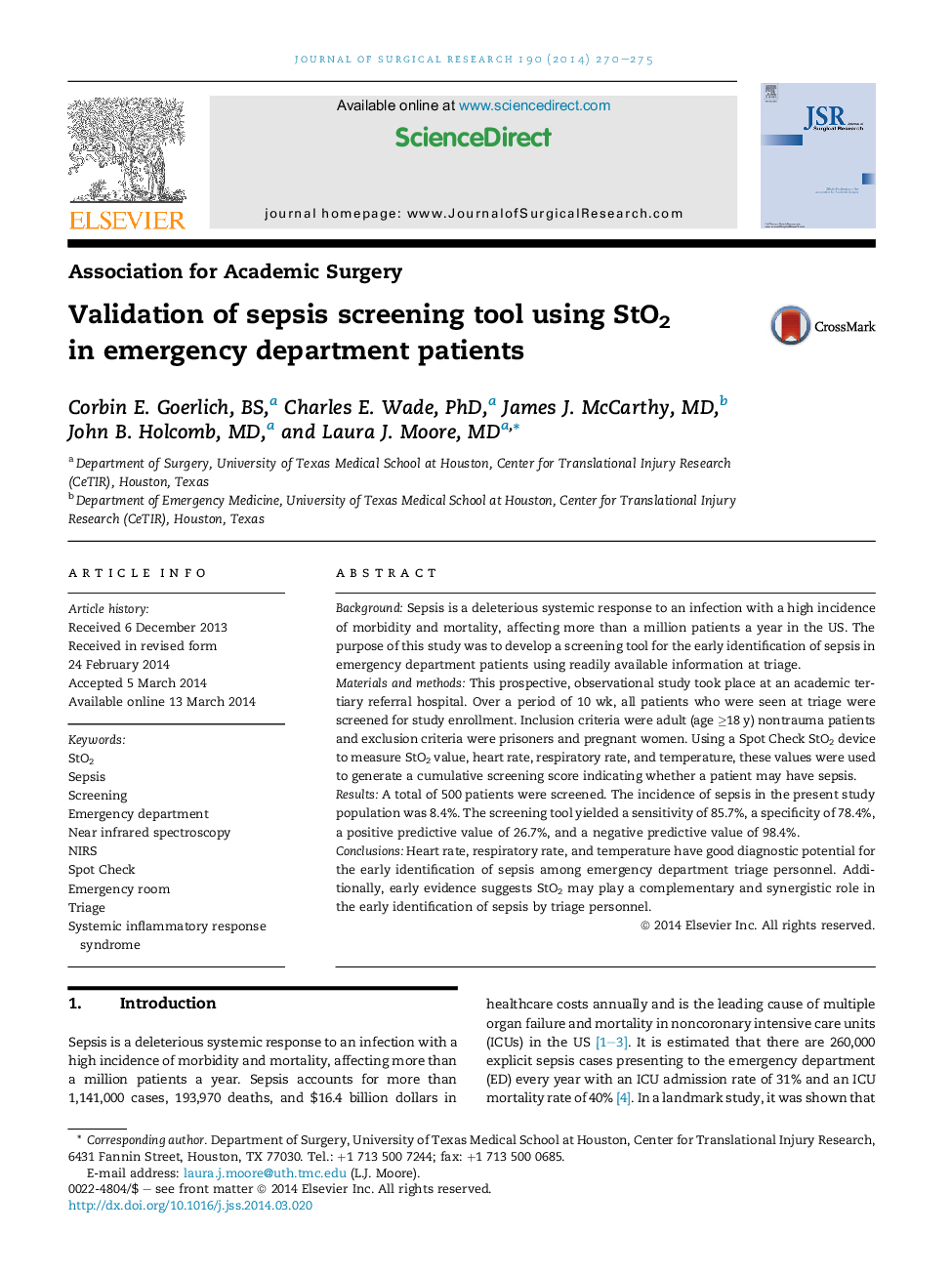| کد مقاله | کد نشریه | سال انتشار | مقاله انگلیسی | نسخه تمام متن |
|---|---|---|---|---|
| 4300193 | 1288414 | 2014 | 6 صفحه PDF | دانلود رایگان |

BackgroundSepsis is a deleterious systemic response to an infection with a high incidence of morbidity and mortality, affecting more than a million patients a year in the US. The purpose of this study was to develop a screening tool for the early identification of sepsis in emergency department patients using readily available information at triage.Materials and methodsThis prospective, observational study took place at an academic tertiary referral hospital. Over a period of 10 wk, all patients who were seen at triage were screened for study enrollment. Inclusion criteria were adult (age ≥18 y) nontrauma patients and exclusion criteria were prisoners and pregnant women. Using a Spot Check StO2 device to measure StO2 value, heart rate, respiratory rate, and temperature, these values were used to generate a cumulative screening score indicating whether a patient may have sepsis.ResultsA total of 500 patients were screened. The incidence of sepsis in the present study population was 8.4%. The screening tool yielded a sensitivity of 85.7%, a specificity of 78.4%, a positive predictive value of 26.7%, and a negative predictive value of 98.4%.ConclusionsHeart rate, respiratory rate, and temperature have good diagnostic potential for the early identification of sepsis among emergency department triage personnel. Additionally, early evidence suggests StO2 may play a complementary and synergistic role in the early identification of sepsis by triage personnel.
Journal: Journal of Surgical Research - Volume 190, Issue 1, July 2014, Pages 270–275